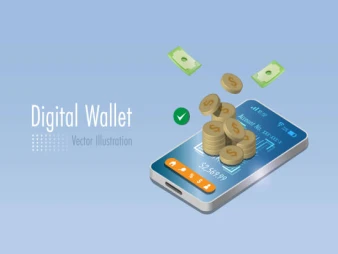Free support 24/7
Free support 24/7

Programming is one of the modern arts that contribute greatly to the development and progress of the world. The ability to write code and develop software is a valuable skill that can open doors to a deeper understanding of the world of modern technology. Programming languages come here as a way to communicate with the hardware and direct it to perform the specific tasks. In this article, we'll look at the concept of programming languages and give some tips to start your learning journey.
The concept of programming languages:
A programming language is a set of rules and commands that programmers use to write programs and applications that run on a computer. These languages come in many forms, each with its own uses and advantages. These languages differ in the level of detail that can be controlled. Some of them offer flexibility and sustainability for large projects, while some languages are ideal for beginners because they are easy to learn.
How do you start learning programming?
1. Set your goal:
Before you start learning programming, set yourself the goal that you want to achieve. Do you want to develop smart phone applications? Or do you prefer web programming? Specifically the target, you will be able to choose the appropriate language for the purpose.
2. Choose the right language:
There are many programming languages available, such as Python, JavaScript, Java, C++, and others. Choose the language that best matches your goal and experience level. Usually, it is recommended for beginners to start with Python, because it is easy to learn and use in a variety of fields.
3. Learn the basics of programming:
Before you learn a specific programming language, you must understand the basic concepts of programming, such as variables, conditions, loops, and functions. You can count on free online resources, such as video lessons and educational websites.
4. Practical application:
You are not limited to studying theories only, but always try to apply what you have learned in practice by writing simple programs. Solve small problems and develop simple applications. This will help you in enhancing your understanding and linking the concepts together.
5. Practical projects:
Once you've mastered the basics, try moving on to bigger, more challenging projects. Build simple apps or websites. These projects will give you a chance to apply your skills and learn many new things.
6. Communication and exchange of knowledge:
Feel free to join our online programmer communities. There are forums and groups on social media where you can ask questions and share your experiences with others.
Types of programming languages:
There are a variety of programming languages, and each language has its own uses and advantages. Some languages, such as Python, are very expressive and easy to read, making them ideal for beginners. While other languages such as C++ and Java are used to develop advanced applications and games.
Python language:
Python is an ideal language for beginners, as it has a simple syntax and clear syntax. It is used in a variety of fields such as web development, data science, artificial intelligence, and various applications.
JavaScript language:
JavaScript is mainly used to develop web applications and gives browsers interactivity. They can be used to add visual effects and improve the user experience on the web.
Java language:
Java is widely used in the development of mobile applications and smart devices, as well as desktop applications and operating systems. It is known for its ability to handle large and complex applications.
C++ language:
C++ is used to develop high-performance software such as games and applications that require fast processing. It provides programming power and flexibility and is also used in systems software development.
Steps to start learning programming:
1. Learn the basics:
It always starts with understanding the basics. Learn about concepts such as variables, conditions, loops, and functions. These basic concepts form the basis of your understanding of the world of programming.
2. Start with plain language:
Choose an easy and straightforward programming language to start with, such as Python. This language will help you understand the concepts easily and build your confidence in programming.
3. Practice:
Don't just read, write your own code. Do small problems and simple projects to apply what you have learned and enhance your understanding.
4. Studying large projects:
When you master the basics, take the challenge and start building bigger projects. These projects may be web applications or simple games. This helps in applying your skills at a higher level.
5. Learn from the experts:
Take advantage of online learning resources, such as picture lessons, educational websites, and videos. Learn from the experiences of the most experienced programmers.
6. Connect with the community:
Join online programmer forums and groups. You can ask questions, share your experiences, and find support and inspiration from others.
Challenges you may face and how to overcome them:
1. Difficulty starting:
At first, you may feel confused and difficult to understand some programming concepts. To get through this challenge, be patient and keep learning. Start with simple concepts and work your way up in difficulty.
2. Handling Errors:
Errors are an essential part of the programming process. When you encounter error messages, use it as an opportunity to better understand and debug your code. Take advantage of online support sources and databases to solve problems.
3. Stay limited in scope:
At first, your projects may be small and limited in scope. Try to identify progressively larger projects to develop your skills and try new things.
4. Updates and Changes:
The world of programming is ever-changing, and this can be a challenge keeping pace with developments. Learn how to deal with updates and how to stay up to date with the latest technologies and tools.
Additional tips to facilitate the learning process:
1. Start with a small business:
Instead of just studying theories, start writing code for a simple project. It could be a small app or even a simple game. This will help you put into practice what you have learned.
2. Set Measurable Goals:
Set clear, measurable goals to assess your progress. These goals can be like creating a project
Complete one or solve a specific challenge.
3. Take advantage of the available resources:
There are many free online resources such as online learning platforms, websites, and programmer blogs. Take advantage of it to learn new concepts and develop your skills.
4. Learn from mistakes:
Don't be afraid to make mistakes, it's part of the learning process. Consider each mistake an opportunity to improve your skills and understanding.
5. Look for Challenges and Contests:
Participating in coding challenges and contests can be a powerful motivator to develop your skills. These challenges ask you to solve specific problems and improve your abilities.
Continuity of learning and development:
1. Follow up on new technologies:
The world of programming is ever-changing, and new technologies and tools are constantly emerging. Keep track of these developments by reading technical articles and blogs and following technology conferences and seminars.
2. Continuing Study:
Programming is a field that requires continuous study. Learn how to read code and technical documents and how to deal with new technical challenges.
3. Participation in the community:
Get involved in local or global programmer communities, whether that's by attending meetings or participating in Internet forums. This will enable you to exchange experiences and knowledge with your colleagues.
Guide your career path:
1. Discover your interests:
The world of programming is vast and diverse, so it is important to discover the areas of programming that interest you the most. Do you prefer developing mobile applications? Or are you interested in developing websites?
2. Develop Specific Skills:
Depending on your interests, try to develop specific skills. For example, if you are interested in developing web applications, learn languages and frameworks in this field.
3. Build a track record:
Start by building a track record of your projects and accomplishments. This will help you better present yourself to companies and business owners.
Take advantage of professional opportunities:
1. Build a network:
Build relationships with programming professionals. This may help you find job opportunities and exchange experiences.
2. Participation in real projects:
Try to participate in real projects, whether they are within the university or through programmers' communities. This will increase your expertise and expose you to actual work experience.
3. Searching for job opportunities:
Use websites and online platforms to search for job opportunities in the field of programming. Feel free to apply for jobs that match your skills and interests.
Develop a programmed mindset:
1. Critical Thinking and Problem Solving:
Developing critical thinking is an essential part of your coding path. Learn how to systematically analyze problems and find effective and creative solutions.
2. Continuous learning and knowledge updating:
Technology is changing rapidly, so you must be willing to update your knowledge and skills regularly. Keep learning and take advantage of up-to-date resources.
Programming impact on the world:
1. Innovation and Technology Development:
Programming has a huge role in advancing technological progress. Programming applications contribute to the development of smart devices and future technology.
2. Improve daily life:
Applications and software play a role in facilitating our daily lives, whether it is through health applications, online shopping, or entertainment.
Commitment to programming ethics:
1. Compliance with Intellectual Property Rights:
When developing your software, be sure to respect the intellectual property rights of others and not use protected content without permission.
2. Keeping Users Safe:
When developing applications and websites, keep in mind the security of users and the protection of their personal data.
3. Fair dealing and transparency:
Deal fairly with colleagues, customers and users, and be transparent in presentation and communication.
Enjoyment and creativity:
Don't forget to enjoy the coding process and experiment with creativity. Develop projects that reflect your interests and passions. Coding gives you the opportunity to express yourself and turn your ideas into reality.
Challenges and rewards:
1. Challenges:
Although learning to code is fun and exciting, it also comes with challenges. You may encounter complex problems and difficulties in understanding some programming concepts. You may experience times when you get frustrated when your code doesn't work as you would like it to. Overcoming these challenges requires patience and perseverance.
2. Rewards:
With time and consistent training, you will start to see positive results. You will be able to build applications and projects that reflect your creativity and understanding of programming. You will be able to solve problems faster and more efficiently. In addition, programming skills will open you up to new job opportunities and generate additional income.
Continuing and expanding horizons:
The learning journey in the field of programming never ends. By constantly developing your skills and exploring new technologies, you will continue to grow and develop. In the future, you may find yourself working on larger and more complex projects, and may even be involved in developing world-changing technology.
Encouraging continuous learning:
1. Continue to develop skills:
Never stop developing your skills once you become a skilled programmer. The world of programming is ever-changing, and there are always new techniques and tools that you need to learn. Keep studying new topics and applying them to your projects.
2. Learning from experiences:
Whether your successes or failures are in programming, you can use them as learning opportunities. Analyzing the problems you have faced in the past and knowing how to avoid them in the future helps you grow.
Discover new areas:
1. Expand your interests:
You may discover that you have multiple interests in the world of programming. Experiment with learning different languages and technologies to see what interests you the most.
2. Developing various projects:
Don't be limited to just one project. Try building various projects targeting different fields. This may open up new horizons for your skills and multiple job opportunities.
Achieving positive impact:
1. Contribution to society:
Use your coding skills to help the community. You can contribute to open source projects or develop applications that solve local problems.
2. Innovation and Change:
You have the power to change the world through the
technology. There are always opportunities to create new applications and tools that improve people's lives.
In conclusion:
At the end of this article, it turns out that "Introduction to the World of Programming" is a great start for those who want to enter this exciting world. Learning to code is not just learning to code languages, it is a process of developing mindset and skills. With dedication and persistence, you can become a skilled programmer capable of developing applications and software that change the world. Enjoy the journey and be ready to discover more and more in this amazing world.

تعرف على أهم المعايير اللي تساعدك تختار شركة برمجة تقدر تثق فيها وتبدأ مشروعك الإلكتروني بأمان واحترافية

وش وضع الخبرة التقنية هل هي شرط أساسي ولا تقدر تبدأ بدونها نجاوبك بالتفصيل في هالمدونة
You can create your store easily